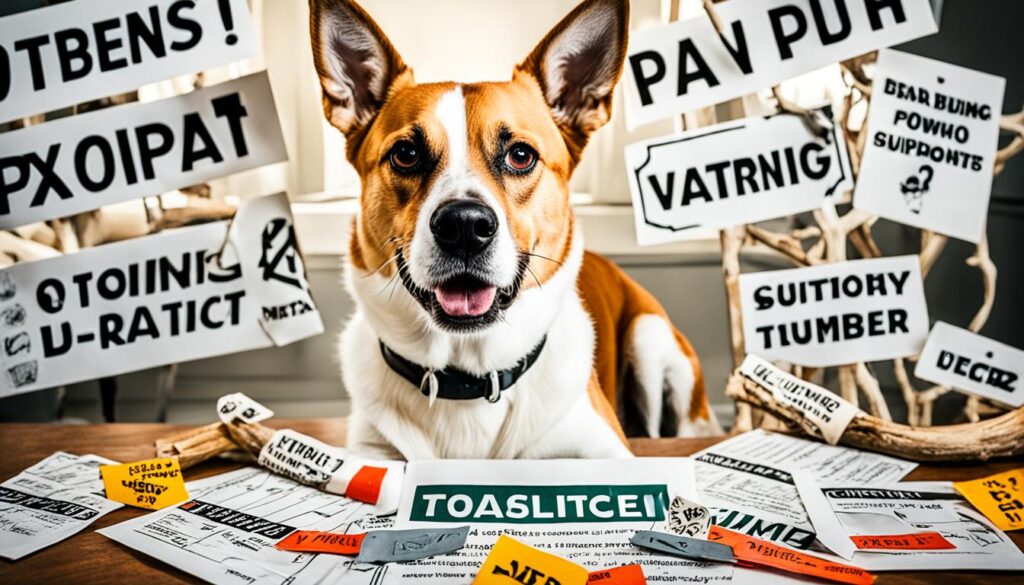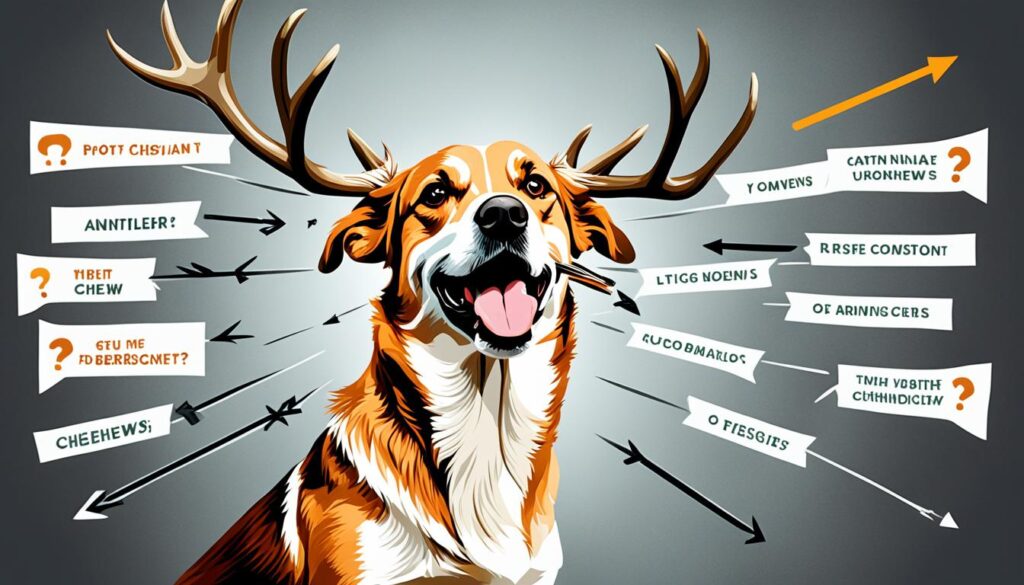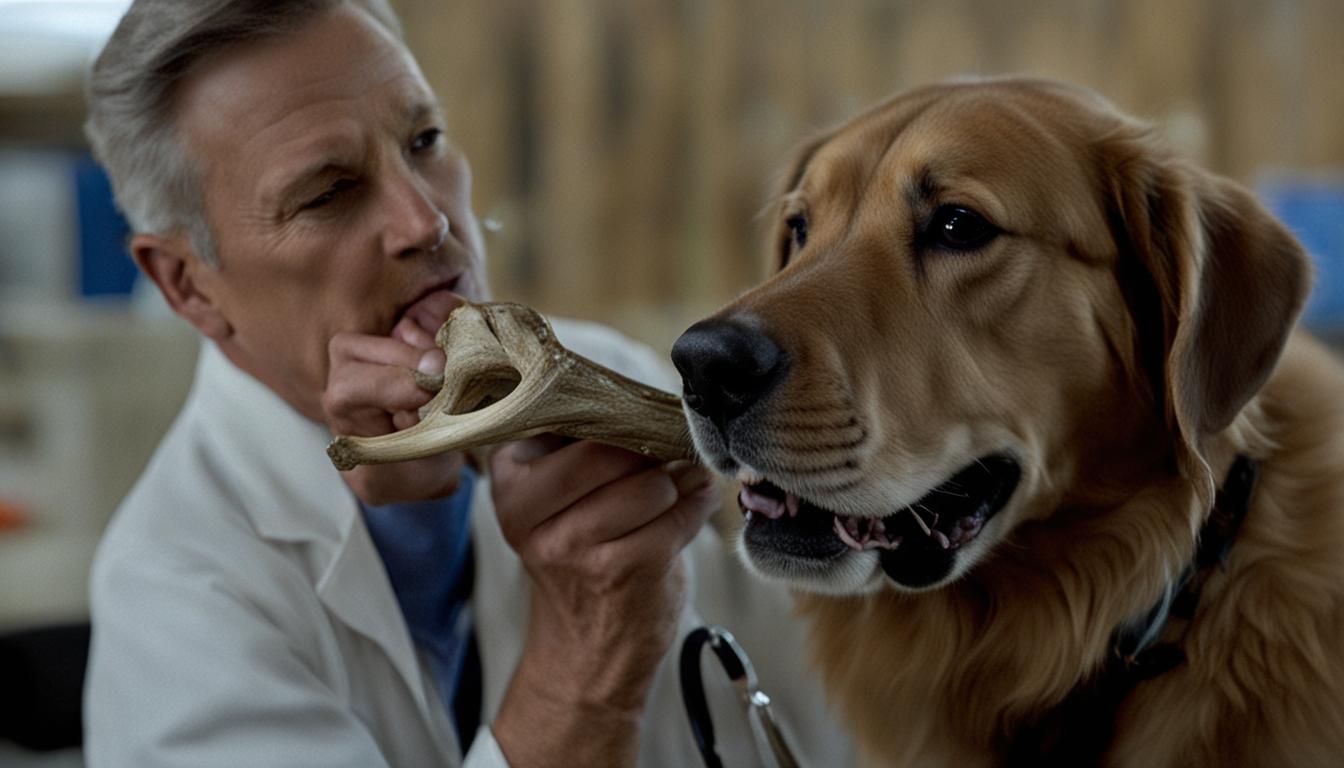Are Deer Antlers Safe for Dogs? Vet Insights
When it comes to choosing safe and enjoyable chew options for our furry friends, the topic of deer antlers often arises. Many pet owners wonder, are deer antlers safe for dogs? Are they a suitable chew option that promotes dental health without posing any risks? Let’s explore this question further with insights from veterinarians.
Deer antlers are often touted as durable yet gentle enough for dogs to chew on without harming their teeth. However, it’s essential to consider the varying opinions surrounding their safety. Bones from smaller game, such as chicken bones, are generally considered safer options for teeth cleaning.
It’s crucial to acknowledge that antlers can vary in density and quality. Recently shed antlers tend to be softer than aged ones. It is recommended to choose antlers that are appropriate for your dog’s size and chewing habits.
Content Highlights
ToggleKey Takeaways:
- Deer antlers can be a controversial choice as a dog chew.
- Elk antlers are often preferred due to their durability and softness.
- Antlers should be selected based on your dog’s size and chewing habits.
- Bones from smaller game are considered safer for teeth cleaning.
- Consult with your veterinarian to determine the best chew options for your dog.
Potential Risks of Deer Antlers for Dogs
When it comes to choosing the right chew for your beloved furry friend, it’s important to weigh the potential risks against the benefits. While deer antlers may seem like a natural and enticing option, there are some concerns to be aware of.
Reports of Tooth Injuries
There have been instances of dogs breaking their teeth while chewing on antlers or goat horns. These natural materials can be extremely hard, posing a risk to a dog’s dental health. A fractured tooth can not only be painful for your canine companion, but it may also result in costly dental procedures.
Lodged Splinters and Puncture Injuries
Another potential danger of deer antlers is the risk of sharp splinters getting lodged in a dog’s mouth, throat, or intestines. These sharp fragments can cause discomfort, infection, or even lead to serious internal injuries. Additionally, some antlers have the potential to puncture the delicate gum tissue, causing significant trauma.

“Choosing a chew for your dog requires careful consideration of the potential risks involved. It’s essential to prioritize their safety and well-being above all else.”
While every dog is different, it’s crucial to evaluate the potential risks before introducing deer antlers as a chew option. If you opt to give antlers to your dog, closely monitor their chewing habits and regularly inspect the antlers for signs of wear and tear. Consider alternatives such as soft bones or dog-specific chew toys that are designed to be gentler on teeth and gums.
Benefits and Risks of Various Dog Chews
When considering the safety of dog chews, it is essential to evaluate factors such as hardness, obstruction risk, and choking hazards. Different types of dog chews, including antlers, have their own pros and cons that should be taken into account before making a decision for your furry friend.
The Pros and Cons of Antlers for Dogs
Antlers are a popular choice for dog chews due to their durability and long-lasting nature. They provide dogs with a satisfying chewing experience, promoting dental health and reducing boredom. Additionally, antlers are natural and free from artificial ingredients or additives, making them a wholesome choice for your pet.
However, it is crucial to be aware of the potential risks associated with antlers. Their hardness can pose a danger to a dog’s teeth, especially if the dog chews aggressively or has dental issues. There is also a risk of broken teeth or oral puncture injuries if the dog bites down too forcefully. Furthermore, antlers can break into small pieces or splinters, which can become lodged in the dog’s mouth, throat, or intestines, causing serious health complications.
Other Dog Chews with Benefits and Risks
While antlers are a popular option, there are alternative dog chews available, each with their own set of benefits and risks. It is important to consider these factors when determining the most suitable chew for your dog:
- Bones: Bones, including antlers, can provide hours of chewing pleasure and help keep teeth clean. However, the risk of tooth damage, constipation from bone fragments, and choking exists with any type of bone chew.
- Hard Cheese Blocks: Hard cheese blocks, such as frozen cheddar cubes, can be a safer option for dogs who are moderate chewers. They are softer than antlers and less likely to cause tooth injuries. However, if gulped down too quickly, they can still present a choking hazard.
- Cow Hooves: Cow hooves are another popular choice for dog chews due to their durability. However, they can be quite hard and may pose a risk of tooth fractures or obstructions if large pieces are swallowed.
- Nylon Bones: Nylon bones are synthetic alternatives to natural chews. They come in various shapes and sizes, providing dogs with a chewing outlet. While they are generally safe and durable, some dogs may develop gastrointestinal blockages if they excessively swallow small pieces.
It is important to supervise your dog while they chew on any type of chew, regardless of its safety profile. Monitor their behavior and discontinue the chew immediately if you notice any signs of distress or choking.

Remember, every dog is different, and what works well for one may not be suitable for another. Consult with your veterinarian to determine the best and safest chew options for your individual dog based on their size, chewing habits, and dental health.
By carefully weighing the benefits and risks of various dog chews, you can make an informed decision and ensure that your furry companion enjoys a safe and satisfying chewing experience.
Conclusion
While some dog owners may have had positive experiences with giving their furry companions deer antlers as chews, it is crucial to carefully consider the potential risks and dangers associated with them. Although deer antlers offer benefits such as being natural, long-lasting, and providing mental stimulation, they can pose hazards to dogs’ dental health and overall safety.
Fortunately, there are several dog-friendly alternatives available that offer a safer option for teeth cleaning and chewing satisfaction. Soft bones, specifically designed chew toys for dogs, and other vet-approved alternatives can provide a suitable substitute while minimizing the risks.
When considering whether to give your dog antler chews, consult with your veterinarian. They can provide valuable guidance and recommend the best and safest chew options based on your dog’s individual needs, size, breed, and chewing habits. Prioritizing your dog’s wellbeing is essential, so make informed choices when it comes to their chewing habits to ensure their health and happiness for years to come.
- Wyoming Deer Season 2025-2026 New Schedule & Rules - 15 September 2025
- Wisconsin Deer Season 2025-2026: WI Deer Hunting Guide [Schedule, Rules, Licenses] - 15 September 2025
- West Virginia Deer Season 2025-2026 Complete Date & Guide - 15 September 2025






